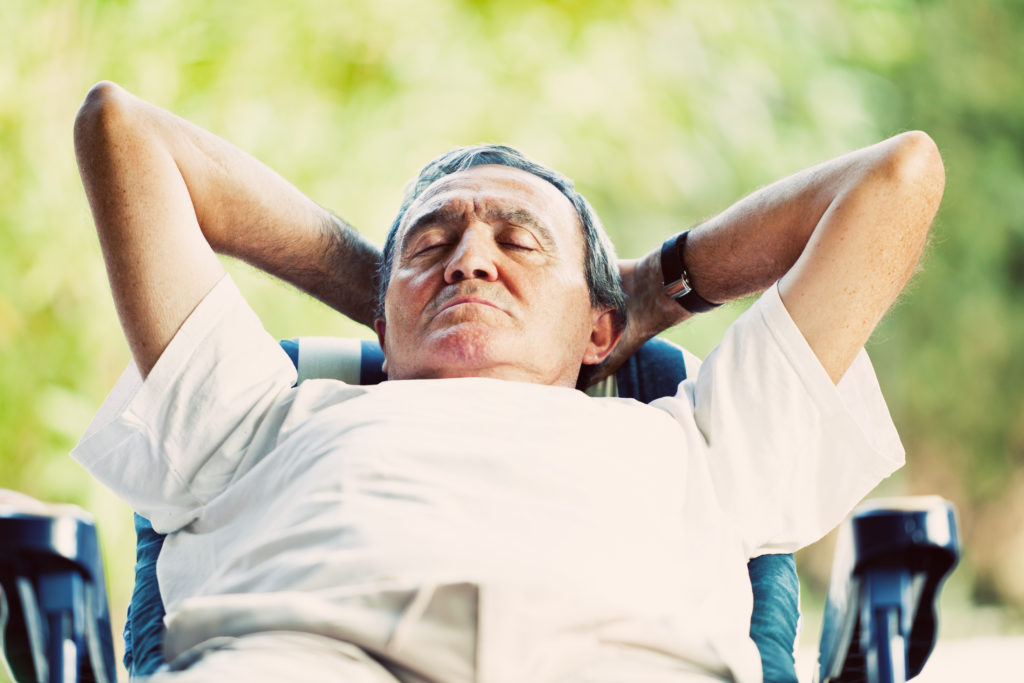Quick Hits
Daily brief research updates from the cognitive sciences
 Who wouldn’t like a daily siesta – especially when it is hot after that post lunch period! And I am sure we have all experienced that desire to sleep when it gets warmer – it pushes us to laze around.
Who wouldn’t like a daily siesta – especially when it is hot after that post lunch period! And I am sure we have all experienced that desire to sleep when it gets warmer – it pushes us to laze around.
Now we may think this is just about activity, but a group of researchers at Northwestern University in the US have peered deeper into the brain to try to find out what is happening. To do this Alpert et al. looked into the brains of fruits flies. Yes, fruit flies. You may not know this but fruit fly brains are commonly used for brain research – their brains are simple – so easier to research, easy to breed, and none of those pesky ethical limitations.
Of note is also that fruit flies have developed all over the world and are attracted to the same temperatures as human beings. They actually seem to have developed to cohabitate with human beings. And this is not the only similarity: they also seem to get dozy under similar conditions when the temperature rises post lunch.
And what did these researchers find?
Well, they managed to identify a circuit in the brain that is a heat circuit and, interestingly this is separate to another cold circuit (so not just one temperature circuit). This suggests that the circuits have distinct functions. They also think they’ve found the spot in the fly brain where these are integrated and therefore impact behaviour. This shows there is separate heat circuit in the brain that directly impacts behaviour and in our case it triggers sleepiness – and not through fatigue which is the normal process.
So, that afternoon nap on a hot day is not your imagination, it is your heat circuit in your brain activating your sleep circuits. And the research shows that an afternoon nap can be very beneficial – so maybe you shouldn’t resist!

Andy Habermacher
Andy is author of leading brains Review, Neuroleadership, and multiple other books. He has been intensively involved in writing and research into neuroleadership and is considered one of Europe’s leading experts. He is also a well-known public speaker, speaking on the brain and human behaviour.
Andy is also a masters athlete (middle distance running) and competes regularly at international competitions (and holds a few national records in his age category).
Reference
Michael H. Alpert, Hamin Gil, Alessia Para, Marco Gallio.
A thermometer circuit for hot temperature adjusts Drosophila behavior to persistent heat.
Current Biology, 2022
DOI: 10.1016/j.cub.2022.07.060
More Quick Hits
So, Meditation Doesn’t Change Your Brain – Or Does It?
editation can actually change your brain. "Oh, no it can’t!" say these researchers. "Oh, yes it can!" say a lot of other researchers. Does this start to sound confusing? Well, it does because there has been plenty of evidence that...
The Life Factors that Make Lonely People Lonely
Quick HitsDaily brief research updates from the cognitive sciences ou may assume, logically at first glance, that not having contact to people is the most important factor in loneliness. And obviously this does have a large impact — but...
How Music Helps With Collective Grief
his study recently out analyses a fascinating episode in China at the start of the pandemic. A group of international musicians in Shenzhen produced a viral hit in China. This was a cover version of Michael Jackson's “you are not alone”...
Why it pays for companies to help workers have a good day in the office
usiness and executives in those businesses are more than keen to get a competitive advantage. To this end they invest heavily in technology and getting the right people to do the job. But, I am sure, we are all more than aware that the work...
Vaccination to Keep Your Memory?
Quick HitsDaily brief research updates from the cognitive sciences ho wouldn’t want to keep their memory when aging?! Well, researchers have just announced some promising results in mice enabling them to keep their memories and avoid some of...
Can Having More Children Reduce Cognitive Functioning?
Quick HitsDaily brief research updates from the cognitive sciences aving more children and late life cognition is not something that is generally researched. There are more obvious avenues such as diet, education, exercise, or socio-economic...






